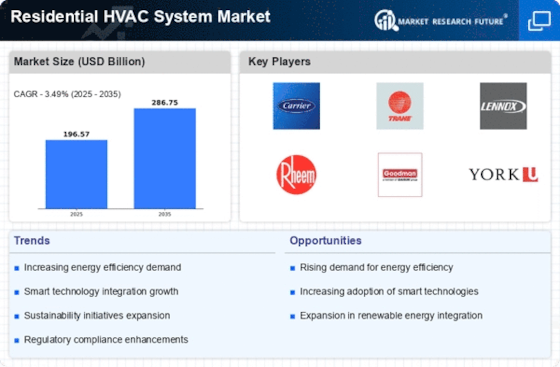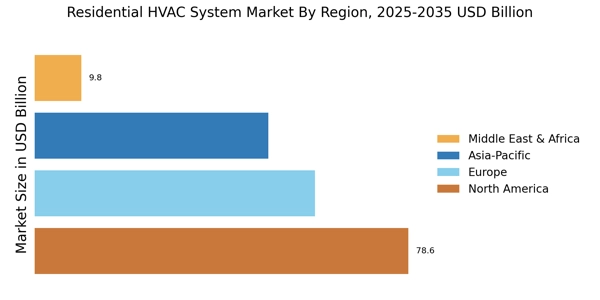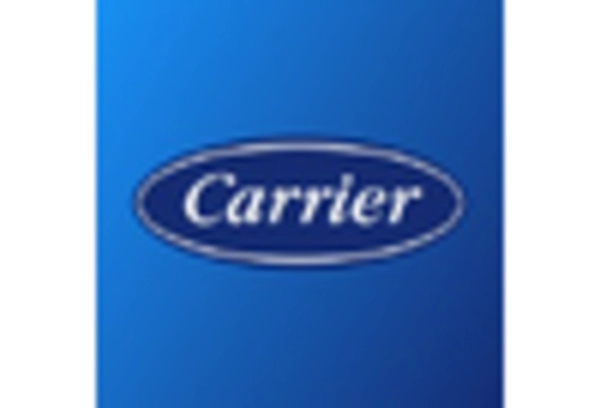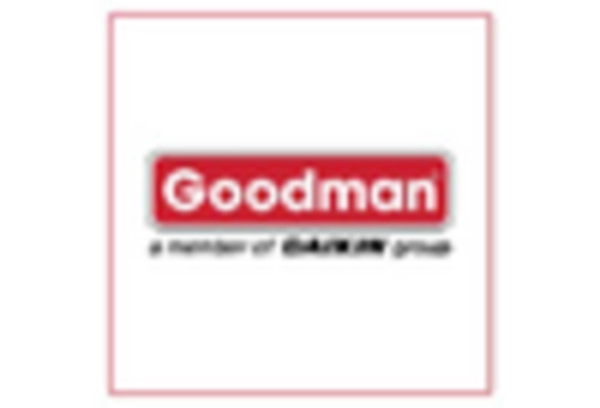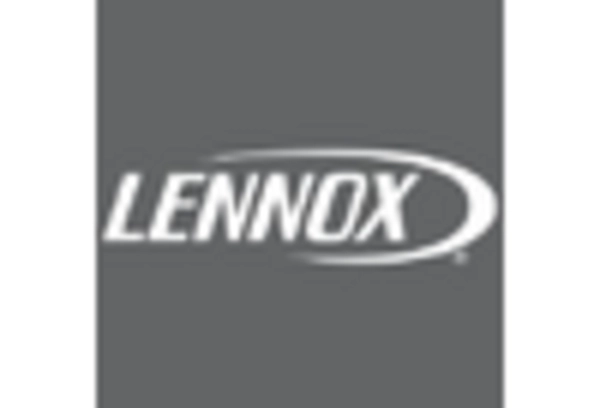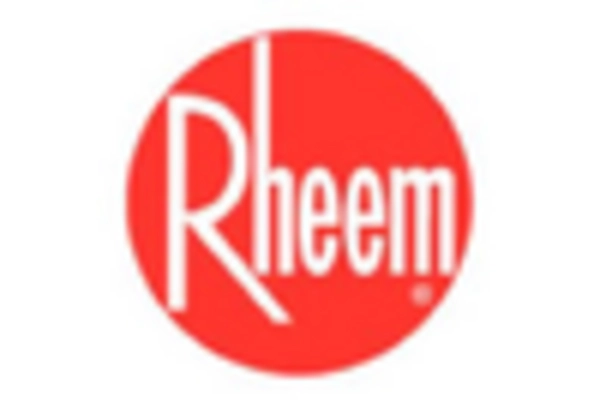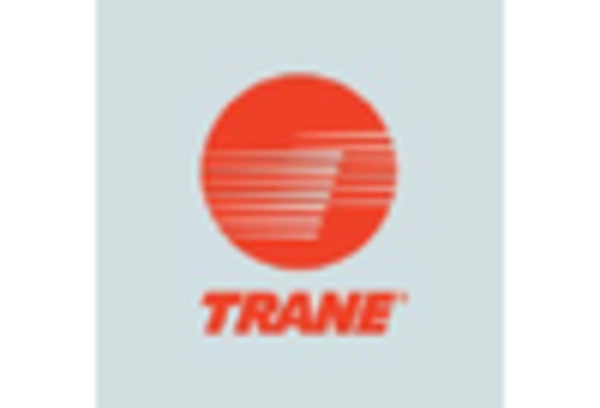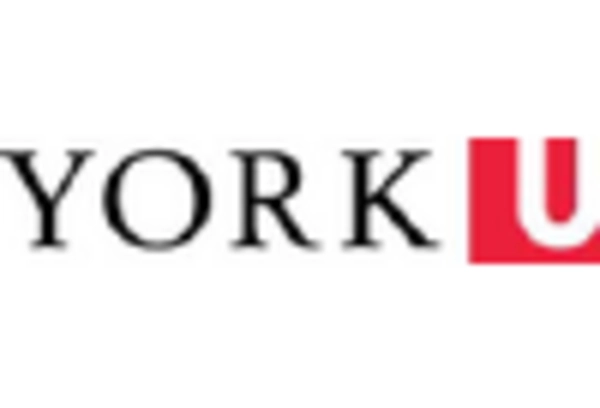Growing Awareness of Indoor Air Quality
The increasing awareness of indoor air quality (IAQ) is emerging as a crucial driver in the Residential HVAC System Market. Consumers are becoming more conscious of the health implications associated with poor air quality, leading to a heightened demand for HVAC systems that incorporate advanced filtration and ventilation technologies. Research suggests that poor IAQ can lead to various health issues, prompting homeowners to seek solutions that enhance air quality. The market for air purifiers and advanced filtration systems is projected to grow significantly, with estimates indicating a potential increase of 25% in the next few years. This trend is likely to encourage manufacturers to innovate and offer products that not only regulate temperature but also improve IAQ, thereby driving growth in the Residential HVAC System Market.
Regulatory Support for Energy Efficiency
Regulatory frameworks aimed at promoting energy efficiency are significantly influencing the Residential HVAC System Market. Governments are increasingly implementing stringent energy efficiency standards and incentives for homeowners to upgrade their HVAC systems. For instance, various regions have introduced tax credits and rebates for energy-efficient installations, which can reduce the overall cost burden on consumers. This regulatory support is expected to drive the market, as homeowners are more likely to invest in high-efficiency systems that comply with these standards. Data indicates that energy-efficient HVAC systems can reduce energy consumption by up to 50% compared to traditional systems. As regulations continue to evolve, the demand for compliant HVAC solutions is likely to rise, further stimulating growth in the Residential HVAC System Market.
Technological Advancements in HVAC Systems
The Residential HVAC System Market is experiencing a notable transformation due to rapid technological advancements. Innovations such as smart thermostats, variable refrigerant flow systems, and advanced heat pumps are becoming increasingly prevalent. These technologies not only enhance energy efficiency but also improve user experience through automation and remote control capabilities. According to recent data, the integration of smart technologies in HVAC systems is projected to increase by approximately 30% over the next five years. This shift towards more sophisticated systems is likely to drive demand, as consumers seek solutions that offer both comfort and cost savings. Furthermore, the growing trend of home automation is expected to further propel the adoption of advanced HVAC technologies, making them a key driver in the Residential HVAC System Market.
Rising Demand for Energy-Efficient Solutions
The Residential HVAC System Market is witnessing a surge in demand for energy-efficient solutions, driven by rising energy costs and environmental concerns. Homeowners are increasingly seeking HVAC systems that minimize energy consumption while maintaining optimal comfort levels. Data indicates that energy-efficient systems can lead to substantial savings on utility bills, with some homeowners reporting reductions of up to 40%. This growing preference for energy-efficient solutions is prompting manufacturers to invest in research and development to create products that meet these consumer demands. Additionally, the trend towards sustainability is influencing purchasing decisions, as consumers are more inclined to choose HVAC systems that align with their environmental values. As a result, the focus on energy efficiency is likely to remain a key driver in the Residential HVAC System Market.
Increased Construction and Renovation Activities
The Residential HVAC System Market is benefiting from increased construction and renovation activities across various regions. As new residential projects emerge and existing homes undergo renovations, the demand for modern HVAC systems is on the rise. Data suggests that the construction sector is expected to grow by approximately 5% annually, which will likely translate into higher demand for HVAC installations. Homeowners are increasingly opting for energy-efficient and technologically advanced systems during renovations, further propelling market growth. This trend is particularly evident in urban areas where housing demand is high. Consequently, the ongoing construction and renovation boom is poised to serve as a significant driver for the Residential HVAC System Market, as it creates opportunities for HVAC manufacturers and service providers.


